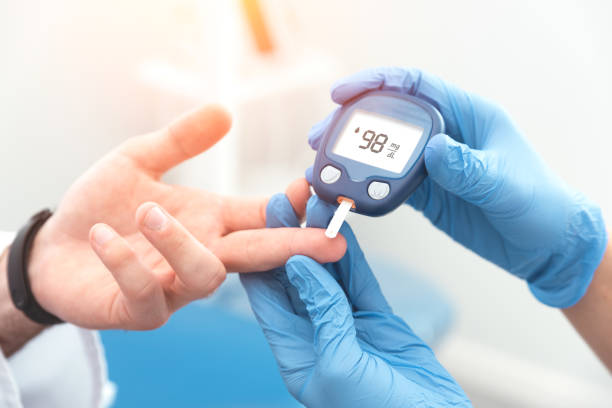Diabetes mellitus, commonly referred to as diabetes, is a chronic medical condition characterised by elevated blood sugar levels. If left untreated, it can give rise to many long-term complications, the most common of which is cardiovascular disease.
What Is Diabetes Mellitus?
Diabetes mellitus, commonly known as diabetes, is a chronic medical condition when the body cannot properly regulate blood sugar (glucose) levels. This happens either because the pancreas doesn’t produce enough insulin or because the body’s cells don’t respond effectively to insulin.
Insulin is a hormone that helps glucose enter cells, where it is used for energy. When blood sugar levels are not properly controlled, it can lead to various health complications. There are different types of diabetes, including Type 1 diabetes, Type 2 diabetes, and gestational diabetes.
What are the Types and Causes of Diabetes?
The causes of diabetes vary depending on the type of diabetes:
1. Type 1 Diabetes
It is considered an autoimmune condition where the body’s immune system mistakenly attacks and destroys the insulin-producing cells in the pancreas. This type of diabetes is less common and usually occurs at a younger age.
2. Type 2 Diabetes
Develops when the body becomes resistant to insulin or doesn’t produce enough insulin to maintain normal blood sugar levels. Risk factors include genetics, obesity, sedentary lifestyle, and age. This type of diabetes is more common and generally presents later in life.
3. Gestational Diabetes
Occurs during pregnancy when the body cannot produce enough insulin to meet the increased demands, leading to elevated blood sugar levels. Patients with gestational diabetes are at increased risk of developing Type 2 diabetes in the future.
4. Prediabetes
Patients with prediabetes have an elevated sugar level that does not fulfil the criteria for diagnosis of Type 2 diabetes. Having prediabetes significant increases your risk of going onto develop Type 2 diabetes. This risk can be reduced with healthy lifestyle changes to diet and exercise.
What Are The Symptoms Of Diabetes?
The symptoms of diabetes can vary depending on the type of diabetes and the individual. Patients with pre-diabetes or in the early stages of Type 2 diabetes may not experience symptoms. For those that do, symptoms of diabetes include:
- Increased need to urinate, especially at night
- Feeling extremely thirsty and drinking more fluids than usual
- Losing weight without intentional dieting or changes in physical activity
- Experiencing constant hunger, even after eating
- Changes in vision, such as blurriness or difficulty focusing
- Feeling tired or lacking energy, even with sufficient rest
- Cuts, bruises, or infections take longer to heal
- Tingling, numbness, or pain in the hands and feet
- Increased susceptibility to infections, particularly in the skin, gums, or urinary tract
- Mood changes, irritability, or difficulty concentrating
How Is Diabetes Diagnosed?
Diabetes is typically diagnosed through blood tests that measure blood sugar levels. Common diagnostic tests include:
- Fasting Plasma Glucose (FPG) Test
- Oral Glucose Tolerance Test (OGTT)
- Hemoglobin A1c Test
- Random Blood Sugar Test
Additional testing may be performed to determine the type of diabetes and assess overall health, including kidney function and cholesterol levels. Individuals with risk factors for diabetes, such as a family history or obesity, may undergo screening tests even in the absence of symptoms.
What are the complications of Diabetes?
Without proper diabetes control, there are numerous long term complications that result from persistently high blood glucose levels. This causes damage to the blood vessels and nerves. The following complications can occur:
- Cardiovascular disease which includes coronary artery disease with increase risk of heart attacks. Increase risk of stroke and peripheral vascular disease.
- Nerve damage which may lead to pain, numbness or tingling sensations
- Kidney failure with elevated risk of requiring dialysis
- Eye damage
- Foot related conditions due to poor blood flow and nerve damage
- Increased risk of infections
How Is Diabetes Treated And Managed?
Diabetes is typically managed through a combination of lifestyle changes, medications, and regular monitoring. Lifestyle modifications include adopting a balanced diet, engaging in regular physical activity, maintaining a healthy weight, and managing stress. Oral medications or injectable medications like insulin may be prescribed to control blood sugar levels. Regular check-ups, blood sugar monitoring, and ongoing collaboration with healthcare providers are crucial for effective long-term diabetes management and preventing complications.






